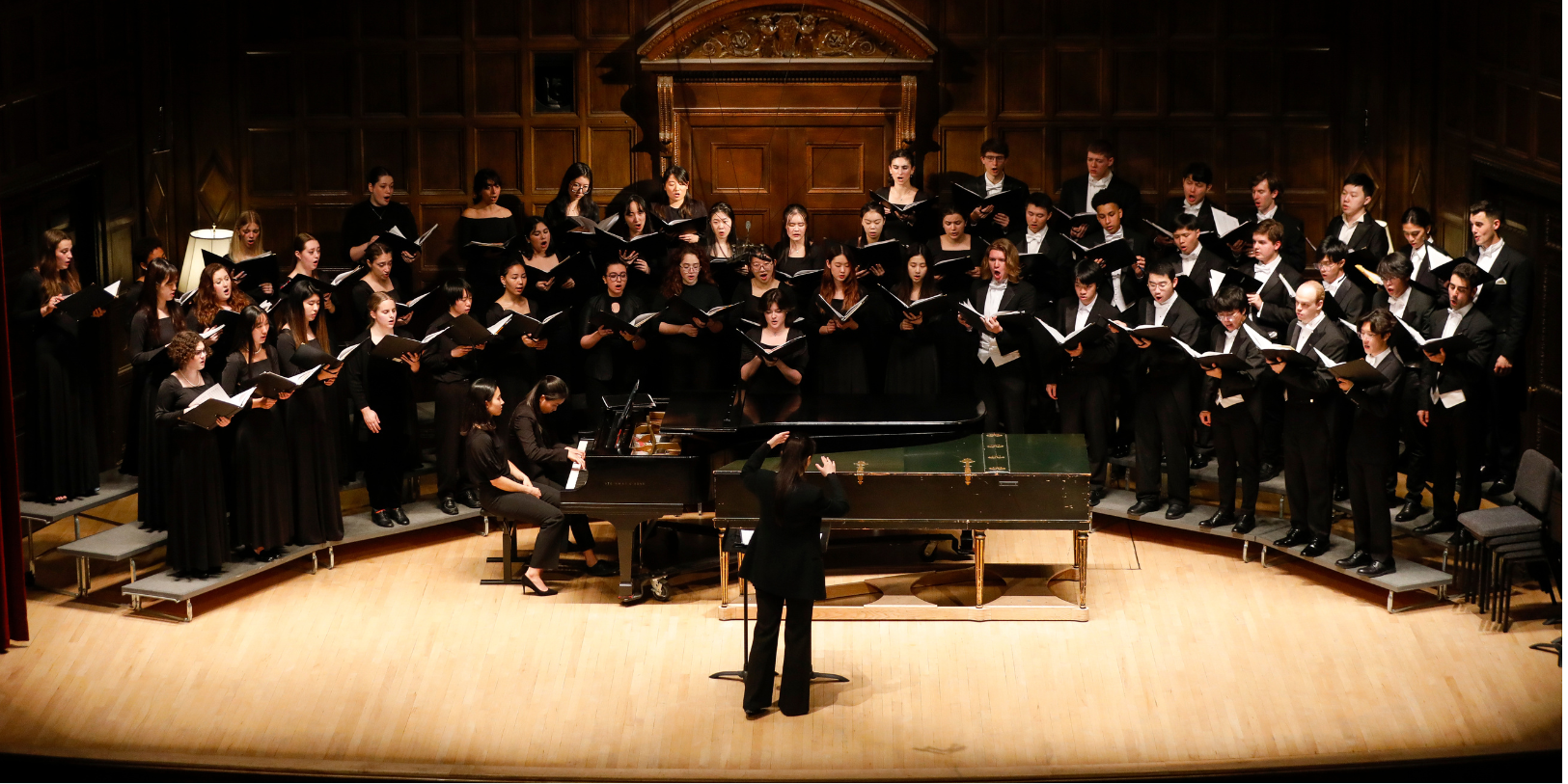The Eastman School of Music is presenting several concerts during February that honor and celebrate Black History. On February 18 in Kilbourn Hall, three choral groups will join forces as student singers gain first-hand experience of the substance and style of an African American musical genre that isn’t often heard within the walls of Kilbourn Hall: gospel singing.
Each chorus includes students from the University of Rochester and from Eastman. Professor Philip Silvey is director of the Eastman/University of Rochester Treble Chorus and chair of Eastman’s Music Teaching and Learning Department. Crystal Sellers Battle, Eastman’s Associate Dean of Equity and Inclusion, is an accomplished classical and gospel singer who will demonstrate her artistry and practical singing advice. Professor Julius Dicks, director of the University of Rochester Gospel Choir and an active church musician, will visit the Eastman campus to join in this concert, including assisting in the rehearsal process, accompanying the choirs, and bringing in members of the University’s Gospel Choir to perform alongside the other singers.
As conductors and performers, they’ll lead the members of the Treble Chorus in a wide-ranging presentation that juxtaposes classical and gospel musical styles and forms the second half of a varied evening of vocal music.
Battle will join student soloists to discuss classical vocal technique in works by Brahms and Lili Boulanger, and gospel technique in three familiar gospel songs: Sonya Whitmore’s “More Abundantly”; the traditional “City Called Heaven,” arranged by Dicks; and, joined by the UR Gospel Choir, Edwin Hawkins’ popular “Oh Happy Day.”
“I’m teaching the Brahms and Boulanger pieces according to my typical process, with students following printed octavos,” Professor Silvey explains. “For the gospel songs, Professor Dicks will teach the students as closely as possible to the way it is done in a Black church setting”—that is, not by following a score, but by call and response, or repetition through imitation.
With a small number of student soloists learning gospel style from Professors Battle and Dicks, and then demonstrating it in performance, the program serves as a musical illustration of the differences and similarities of classical and gospel singing technique. It is the culmination of several rehearsals which Silvey describes as “a laboratory setting for students to experience what it means to sing multiple genres in healthy ways.”
This subject is very close to Battles’ heart, and in fact formed the basis for her dissertation, in which she wrote: “Like most African American musicians, gospel music significantly influenced my childhood and my understanding and appreciation for music. I began singing gospel music at the age of three at Holy Temple Church of God in Columbus, Ohio, where my father was pastor.
“During my undergraduate studies as a music major, I was often told that I had to make a choice between singing gospel or classical music. … However, this was not a viable choice for me since gospel music was, and continues to be, an essential part of who I am.”
Her refusal to follow this ultimatum, she says, led her to develop “a healthy vocal technique versatile enough to allow me to sing both gospel and other vocal styles.”
The first half of the February 18 concert features Eastman’s Repertory Singers. The program is strictly classical, but is a kaleidoscope of choral music of many styles and countries, including Renaissance madrigals and Lithuanian folksongs, a religious choral piece by a 12-year-old Mozart, music from an opera by Benjamin Britten, and a setting of E.E. Cummings by American composer Louise Talma (see the full program here).
Jiabao Guo, one of the graduate student conductors for this concert, says, “We try to allow each singer to be exposed to a variety of music as much as possible in a short semester.”
“Our first priority is to choose music that Repertory Singers will find intellectual and artistic,” says Colin Mann, the second graduate student conductor. “We are careful about choosing appropriate repertoire that will elevate their understanding.”
Along with musical variety and artistry, the entire concert, in the words of Professor Silvey, “has two main themes: collaboration and versatility.”
The Repertory Singers (Colin Mann and Jiabao Guo, directors), UR Treble Chorus (Philip Silvey, director), and UR Gospel Choir (Julius Dicks, director), with soprano Crystal Sellers Battle, all perform on Sunday, February 18 at 7:30 p.m. in Kilbourn Hall. Click here for more information.
